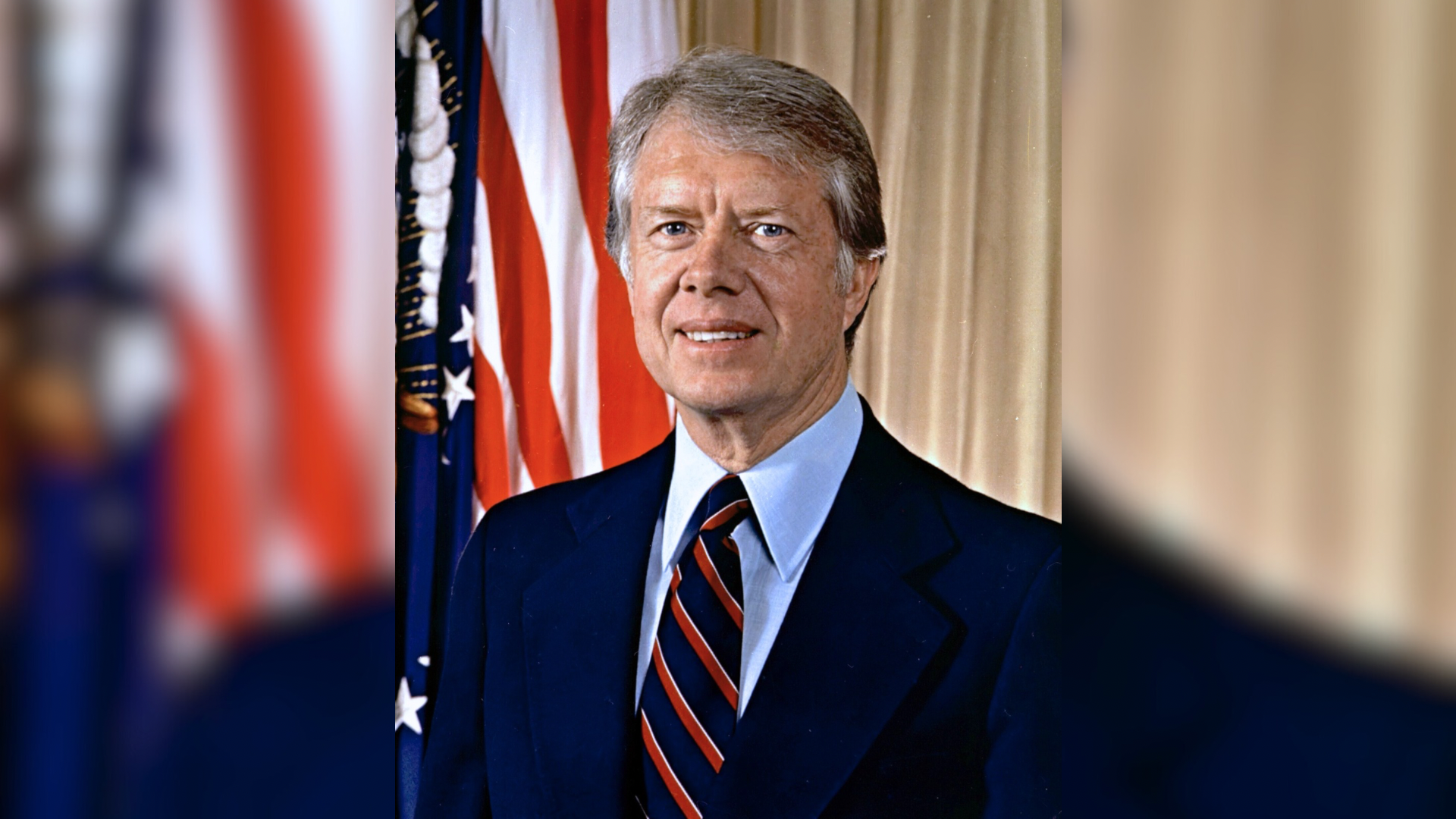Today Jimmy Carter is being eulogized in Washington, D.C., a city he was never all-to comfortable being in as a working class man from Georgia. Let’s reflect on the tremendous life Mr. Carter lived and highlight some of the events that shaped his character and legacy.
President Jimmy Carter began life as a simple man. He was born in Plains, Georgia in a sanitarium that his mother worked at. His birth at the sanitarium would make Jimmy Carter the first American president to be born in a hospital, a true testament to the long life he had lived.
After graduating from Plains High School in 1941, Carter would end up at the Naval Academy in Maryland after securing an appointment from U.S. Representative Stephen Pace. He graduated from the academy with a Bachelor of Science degree in 1946.
During his time in the Navy, Jimmy Carter was deployed several times overseas, where he gained important knowledge and experience that would forever shape his life . One of his assignments in the Navy would land Mr. Carter in a literal pool of radioactive water, as he and his team performed a dangerous operation to shut down a Canadian nuclear reactor that was in partial meltdown. In less than two minutes, Carter had absorbed the maximum amount of radiation for a human being, in one year. For six months after the ordeal his urine tested positive for radioactivity, according to an interview he gave to historian Arthur Milnes.

While his career in the Navy was distinguished, life afterwards was not so easy. Mr. Carter and his wife Rosalyn Carter lived in public housing for a few years, before Carter was able to successfully grow his humble peanut farm. While Carter handled the farming, his wife handled the accounting, and together they grew a thriving business.
Jimmy Carter would eventually make his way to the world of politics. As a member of his church and later the Sumter County School Board, he would speak out in favor of desegregation and integration. Carter had long believed in racial equality, but often kept those thoughts private as a young man living in the South.
Carter and his family became staunch John F. Kennedy Democrats, and as Georgia State Senator he worked quietly to advance the civil rights issues of his day. As a candidate for Georgia Governor he positioned himself as a moderate, but after was sworn in as the 76th governor of Georgia, Carter declared in his inaugural speech that “the time for racial discrimination is over.”

Jimmy Carter would eventually seek the Democratic nomination for President in 1976, where he was a relatively unknown competitor. Despite his status, Carter would go on to win the nomination precisely because he was perceived as an outsider. Carter then defeated President Gerald Ford on November 2, 1976, becoming the 39th president of the United States.

In addition to winning all of Texas’ electoral votes, Carter also won in a landslide in Jim Wells County. He would finish with 7,961 votes or 68.93% to President Ford’s 3,547 votes or 30.71%.
As president, Carter confronted crisis after crisis, and through it all managed to keep the United States at peace. He struck several diplomatic deals while President, most notably he was able to secure peace between Egypt and Israel through the Camp David Accords that was signed on September 17, 1978. The peace deal permanently normalized relations between the two countries.
Although he made great strides overseas, he could not quite tackle the massive issues that plagued the United States at home. The energy crisis, inflation, and unemployment required bold action, and Carter’s outsider status only alienated him in Washington. The 1979 Iranian Hostage Crisis was the final blow to his re-election chances after what many Americans felt like was years of inaction.

Jimmy Carter’s electoral victory in 1976 was remarkable for many reasons, but most notably he was the last Democrat to win Texas and a majority of southern states in a presidential election. The old Southern Democratic Party would die with the end of Carter’s term.
The next southerner to win the Democratic nomination and president was Bill Clinton, who brought a very different type of Democratic politics to the mainstream. In a certain sense, Jimmy Carter was truly the last Southern Democrat.
As a former president, Jimmy Carter continued to champion the issues of peace, social justice, and human decency through his non-profit the Carter Center. He would build homes with Habitat for Humanity on an annual basis, teach classes at his church, and remained down-to-Earth until the very end. This legacy would make him one of the most beloved former presidents that many Americans had the privilege of knowing.
